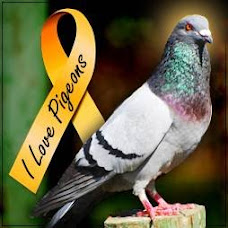by Erik Baard
(see original article here)
One of the stupider “sports” people have come up with is pigeon shooting, where the birds are released from boxes into the line of yahoos’ ready fire. In a 1902 debate over a bill banning the sport from New York, a state senator compared that lack of humanity and sportsman-like behavior to shutting a doe up in a barn and then blasting her as she ran out the open door.
As nearby as Pennsylvania the practice persists, and New York City birds are being stolen to supply the madness. Fortunately, In Defense of Animals is part of the vanguard to stop it. This week the group conferred its first $2,500 award for information leading to the arrest and conviction of a person netting pigeons, also known as rock doves, in NYC. The recipient was Desi Stewart, a street sweeper with the Doe Fund. He spotted Brooklyn resident Isaac Gonzalez spreading seed and netting many pigeons on the Upper East Side of Manhattan. New York State Department of Environmental Conservation officer arrested Gonzalez, who pleaded guilty in Manhattan Criminal Court on June 26, 2008.
It’s a shame Gonzalez didn’t go to prison, if only because we’ll miss the small ironic pleasure of letting him know of his idiocy in trapping for deathly amusement birds whose intelligence might have made them useful allies in alleviating the sufferings of confinement. Kindred criminal spirits in Brazil, at least, were smart enough to attempt to employ the birds as jailhouse smugglers, complete with little pigeon backpacks!
Pigeons have a growing fan base outside “the clink” (is my mother the only person who still uses that expression?) too. National Pigeon Day was Friday the 13th in June, appropriately enough for such a besotted bird. In Defense of Animals, the United Federation of Teachers Humane Education Committee, the New York Bird Club, and luminaries ate pigeon-shaped cookies…and perhaps scandalously snuck a few crumbs to their avian honorees. The contributions of this species, including astonishing heroics in war, rescue, and acts of touching personal loyalty were recounted.
City Councilman Tony Avella, who’s taken the lead on a number of animal rights issues, shared a moving observation. “They are often a city child’s first contact with nature and an elderly person’s only friends,” he said.
One might wonder why there isn’t a greater effort to control pigeon populations, for fear that they might crowd out other, indigenous species. To understand how little worry ecologists have in this regard, here’s a simple exercise: plant your own lush garden or grove of indigenous plants and trees and wait for the pigeons to show up. Or simply visualize the trees on your block being filled with pigeons. It simply won’t happen. The “rock dove” species feeds on the ground and prefers barren areas much like its ancestral cliff sides in Asia Minor. In other words, buildings and asphalt. Not that city life is kind to pigeons. In the wild they live about 14 years, but typically reach only two in urban areas. They do, however, breed a lot more.
If you’d like to get involved in the responsible care and control of pigeons in the city, try volunteering for Pigeon Watch. And remember, if you witness a pigeon netting in the five boroughs of New York City, call New York State DEC Officer Joseph Pane at 718-482-4941. If you need help in rescuing a pigeon of any age or condition, please visit New York City Pigeon Rescue Central. For the simple enjoyment of learning more about this species, one great place to start is Andrew Blechman’s book, Pigeons, which he calls “the world’s most revered and reviled bird.”
All this brings to mind that we’re at a sad centennial: it was in 1908 that zookeepers posted a $1000 reward (more than $23,000 in today’s dollars) for fertile, wild passenger pigeons. That awakening to the crisis was too late and the reward was never collected. Over-hunting and habitat destruction wiped out that species, which once filled North American skies in flocks of billions. Martha, the last of her kind, died in captivity in 1914. I’ll write more about this missing species of pigeons in coming weeks.
Subscribe to:
Post Comments (Atom)












No comments:
Post a Comment